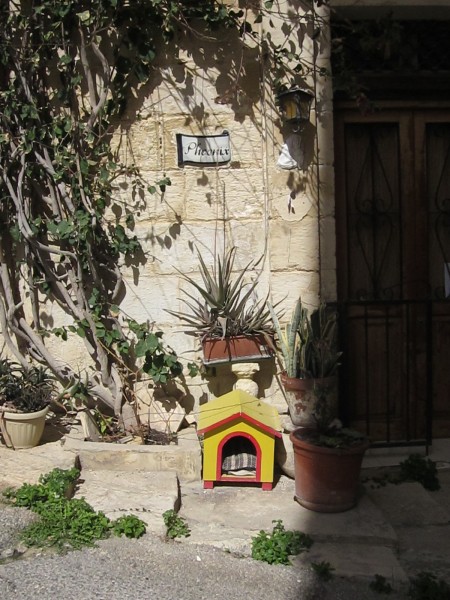Paws In Malta
| Tweet |
I recently had the privilege of spending a couple of weeks in Malta, a tiny country (population about 400,000) of three islands in the middle of the Mediterranean, halfway between Italy and northern Africa. As I do everywhere I go, I tended to look for animals and talk with locals about animal welfare.
It’s tempting to think that animals in Europe have more comfortable lives than many here in Malaysia, but that’s not always the case, of course. Few Maltese keep cats as pets; the vast majority of cats live in feral communities. They catch birds and rodents, and some †people do put food out for them. Still, their lives tend to be harder and shorter than those of household pets.
I stopped in a small shop and was greeted first by a plump ginger cat and second by the lady behind the counter. Maria and I had a lovely chat about her trap/neuter/release or re-home (TNR) efforts. There were actually three cats living in the shop, from which Maria sells hand-made lace. She’s grateful to the cats for keeping the rodents away, as the lace would surely make lovely (and expensive!) nests for mice and rats. The three shop-cats — one neutered tom and two spayed queens — all bore the clipped left ear to indicate that they’d been de-sexed.
Malta is a strongly and almost exclusively Catholic country; the Church runs the schools and holds great influence over the people. Although the Church condemns the use of contraception for humans, the Maltese Archbishop many years ago issued a statement much like the fatwa that the Malaysian Islamic authorities issued, saying that spay/neutering is the lesser of two evils and the more humane option, and the Church is now very supportive of animal welfare efforts.
There was unexpected and unseasonable cold weather when I was there in mid-March (temperatures around 10 degrees with strong winds). Although outdoors, the cats I saw were all thickly-furred and on the plump side. I hope those who were undernourished and underdressed had found a warm shelter! I was delighted to notice that one house in Valletta, the capital city, had put out a “cat house” next to the front doorstep, offering shelter to any feline in need.
I mentioned to a resident of Gozo, the middle-sized island, that I hadn’t seen any stray dogs. “Oh no!” she replied. “The Gozitans treasure their dogs. Most of them love bird-hunting, you see, and a good dog is essential.” During my whole stay, I never saw a single dog in poor condition or wandering loose. Many people sat with their dogs in outdoor cafes when the weather improved, and many shops seem to welcome dogs, as well. (Mind you, all the dogs I saw had impeccable leash manners, and there were signs here and there to remind owners to pick up after their pups.)
There is an SPCA on Malta and several private shelters, as well. The people there are working to address the occasional report of animal cruelty, to increase the level of caring for the country’s cats, and to promote spay/neuter and adoption.
Oh, and no — I did not see a single Maltese dog on Malta. It seems that the little white toy dog breed originated there centuries ago but has since lost favour in its homeland.
| Tweet |





Facebook Comments